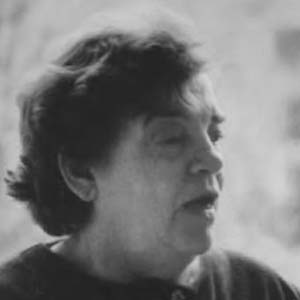Karsten Troyke, one of the first singers to perform at the Days of Yiddish Culture in East Berlin, has a story to tell. During the first edition of the festival, in 1987, a woman from the audience approached him after his concert. It was Sara Bialas-Tenenberg, a Holocaust survivor and a native speaker of Yiddish, born in Czestochowa, Poland. Troyke’s concert of Yiddish songs received a warm reception at the festival, but Sara Bialas-Tenenberg believed that his Yiddish could still be improved. “Sara was sitting in the audience, deeply moved, happy to listen to songs in her beloved language after such a long time,” recollects Troyke. “She wanted to help me make my Yiddish more Yiddish and less German.”. With time, Sara became Karsten’s tutor, but also it friend and a source of inspiration. She was not only one of the few people with whom Troyke could speak Yiddish in an everyday context, but she also knew many Yiddish songs from her childhood in Poland. Troyke started to record her singing and to do research into the songs, some of which had never been documented. Ten years after their first meeting, in 1997, Sara’s Yiddish songs appeared in new arrangements on his CD Forgotten Yiddish Songs (Jiddische Vergessene Lieder).
Enter the content which will be displayed in sticky bar


10 thoughts on “Kaminos”
Was Nicholas related to Alexander Saslavsky who married Celeste Izolee Todd?
Anyone have a contact email for Yair Klinger or link to score for Ha-Bayta?
wish to have homeland concert video played on the big screen throughout North America.
can organize here in Santa Barbara California.
contacts for this needed and any ideas or suggestions welcomed.
Nat farber is my great grandpa 😊
Are there any movies or photos of max kletter? His wife’s sister was my stepmother, so I’m interested in seeing them and sharing them with his wife’s daughter.
The article says Sheb recorded his last song just 4 days before he died, but does not tell us the name of it. I be curious what it was. I’d like to hear it.
Would anyone happen to know where I can find a copy of the sheet music for a Gil Aldema Choral (SATB) arrangement for Naomi Shemer’s “Sheleg Al Iri”. (Snow on my Village)?
Joseph Smith
Kol Ram Community Choir, NYC
שלום שמעון!
לא שכחתי אותך. עזבתי את ישראל בפברואר 1998 כדי להביא את בני האוטיסט לקבל את העזרה המקצועית שלא הייתה קיימת אז בישראל. זה סיפור מאוד עצוב וטרגי, אבל אני הייתי היחיד עם ביצים שהביא אותו והייתי הורה יחיד בשבילו במשך חמישה חודשים. הוא היה אז בן 9. כעת הוא בן 36 ומתפקד באופן עצמאי. נתתי לו הזדמנות לעתיד נורמלי. בטח, אבות כולם חרא, אומרים הפמינציות, אבל כולם צריכים לעבוד כמטרות במטווחי רובה!
משה קונג
(Maurice King)
Thank you for this wonderful remembrance of Herman Zalis. My late father, Henry Wahrman, was one of his students. Note the correct spelling of his name for future reference. Thank you again for sharing this.
Tirza Wahrman (Mitlak)
amazing zchuso yagein aleinu, he wrote the famous niggun Lefichuch that is sung in almost every Israeli Yeshiva